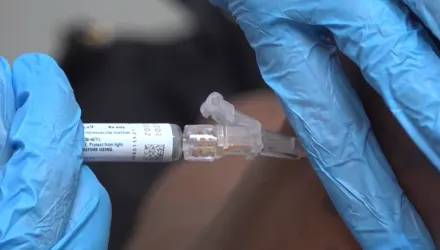Last week, the world marked a historic milestone for both global health equity and security. After a three-year process involving intense negotiations, World Health Organization (WHO) Member States finalized the draft Pandemic Agreement, which will now move forward to the Seventy eighth World Health Assembly (WHA) in May for formal consideration and hopeful adoption. This is not just a bureaucratic win, it is a powerful testament to multilateralism, equity, and our shared commitment to ensuring that the world is never again as unprepared for a pandemic as it was in early 2020.
The COVID 19 pandemic exposed the devastating consequences of fragmented responses and unequal access to life saving tools. From vaccine hoarding to supply chain bottlenecks, the cracks in our global health architecture were laid bare. That is precisely why WHO Member States established the Intergovernmental Negotiating Body at a Special Session of the WHA in December 2021 with the monumental task of building a legal framework that prioritizes equity and solidarity, while remaining cognizant of sovereignty, to prevent, prepare for, and respond to the next pandemic.
The proposed Pandemic Agreement introduces vital pillars that will serve as the foundation of a more resilient global health system. These include strengthening health care systems, protecting and retaining health care workers, a new Pathogen Access and Benefit Sharing System (PABS), a commitment to geographically diversify research and development capacity, facilitating the transfer of technology and knowledge, and a coordinating financing mechanism to support prevention, preparedness, and response, all underpinned by equity.
As global health professionals, we find particular promise in the agreement’s emphasis on prevention and the use of a One Health approach, recognizing the interconnectedness of human, animal, and environmental health. The text also reinforces the importance of a skilled, trained health emergency workforce and a global logistics network, two components the world urgently needs to strengthen.
Importantly, the agreement respects national sovereignty while affirming the necessity of collective action. It does not grant WHO authority over domestic health policies, nor does it mandate lockdowns, vaccine requirements, or border closures, concerns that have often been misrepresented in public discourse. Rather, it provides a roadmap for coordinated, science-based responses to future pandemic threats.
As the agreement text heads to the WHA in May, the world should recognize what this moment represents: a commitment, hard won and built on negotiation, compromise, and a shared purpose to protect current and future generations from pandemic devastation.
This agreement is a generational achievement. In an increasingly fractured world, it is heartening to see that multilateralism is not only alive, but it can also work. This is essential. We applaud the Member States, INB co-chairs, WHO, and the many civil society organizations that made this progress possible.
Let this moment serve as a springboard for the next phase, including drafting a PABS Annex detailing the operationalization of the new PABS System, and a renewed global commitment to a safer, fairer, and healthier future for all.





